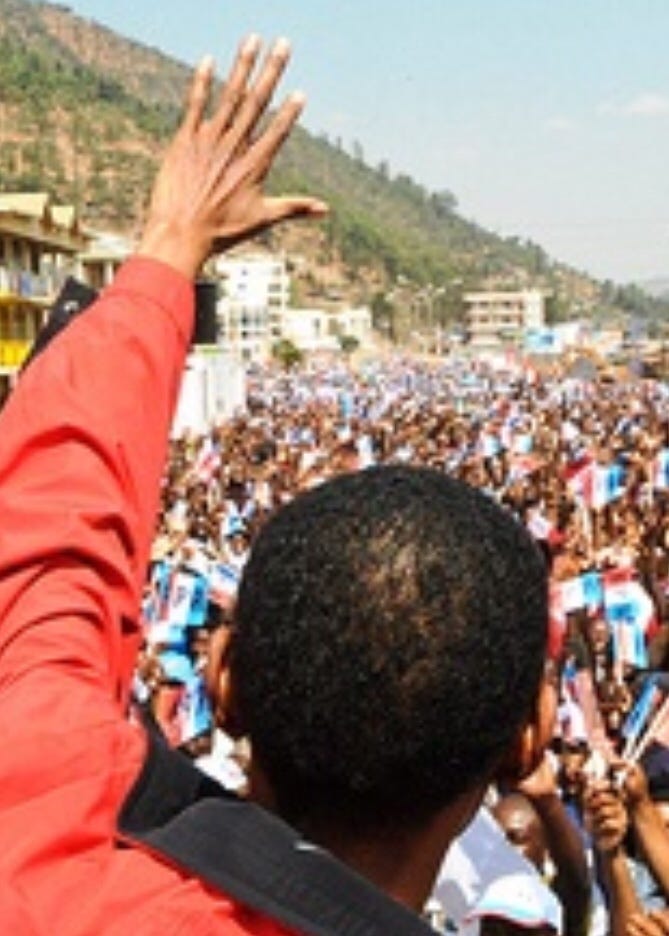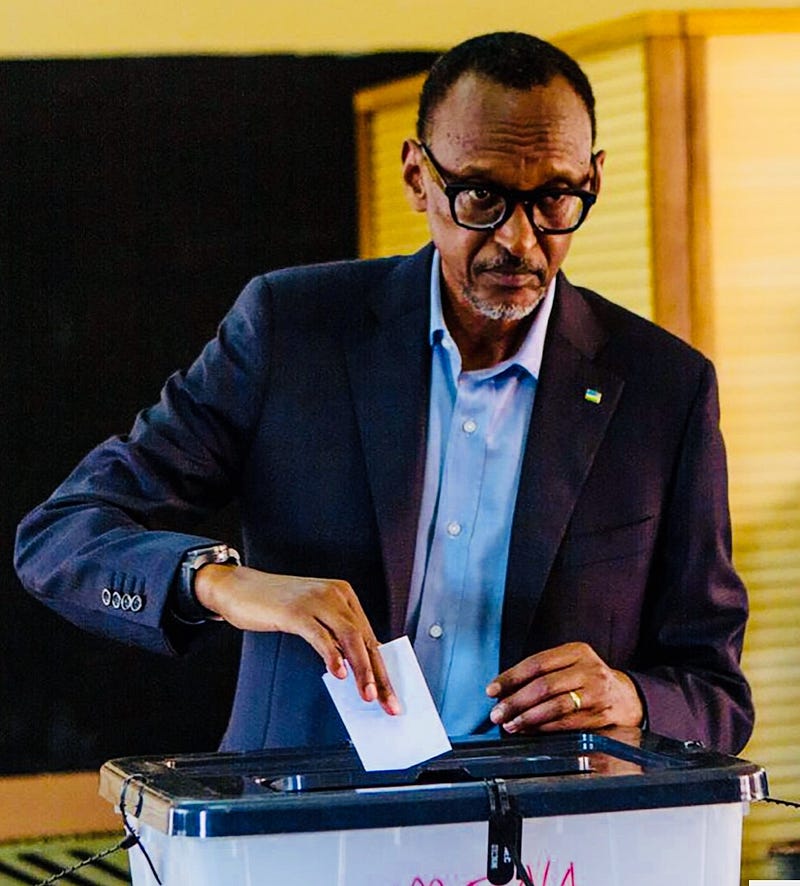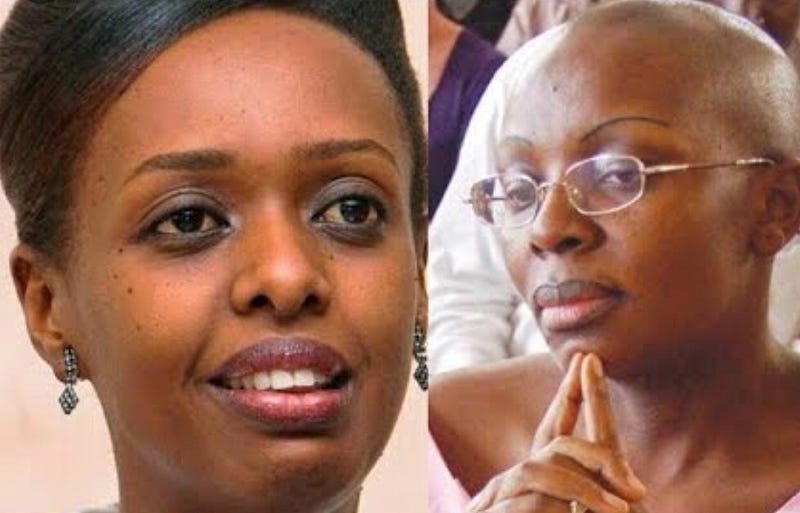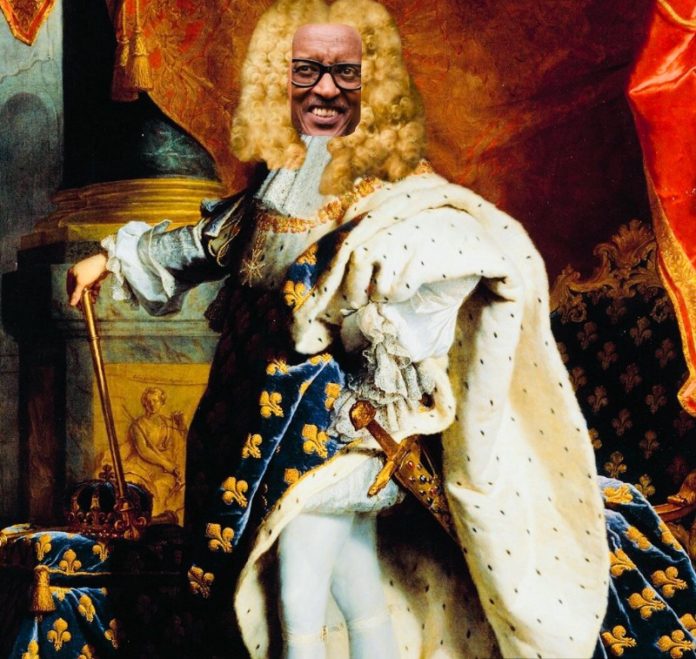Elections in Rwanda often appear to set the world records. For example, in the September 2018 elections, women were only 2 percentage points shy of 70 percent. No country in the world comes close to this. Never mind that women who attempted to run for Rwandan presidency — Victoire Ingabire Umuhoza and Diane Rwigara — are languishing in prison. And the ruling party, Rwanda Patriotic Front (RPF), ”impressively” won 40 seats out of 53 seats in Rwandan parliament. Such an outcome is said to indicate President Paul Kagame’s popularity. In reality, elections in Rwanda are products of engineering. Rwanda is akin to an absolute monarchy. Kagame can rightly proclaim L’état, C’est Moi — I am the state— 303 years after Louis XIV of France uttered these words.
Politicians in Rwandan have zero links to constituencies — they enter parliament via party lists.

Elections in Rwanda, a country thoroughly dominated by RPF, are conducted through the party list system. The party lists are determined by Kagame’s RPF and his lieutenants in associated political parties. Leaders of associated parties are also members of Kagame’s government. For example, the leader of the Social Democratic Party (PSD) is Vicent Biruta, Kagame cabinet minister for nearly 20 years. Because of the party list system, there is no link whatever between the so-called elected representatives and their constituencies. In Kagame’s kingdom, the elected politicians have zero accountability to Rwandan voters. The nearly 70 percent of women entering the Rwandan parliament represent no voters — they are the representatives of King Paul.
The Rwandan constitution makes Kagame an absolute monarch.

Kagame is the Rwandan state on the basis of enormous power accumulated from 1994 to 2018. But nothing compares to the amount of power the 2015 constitutional amendment gave Kagame. The main goal of the 2015 constitutional amendment was to allow Kagame to cling to power after serving two terms. But the amendment went much further. Article 112 ”Powers to enact presidential orders” literally makes Kagame the king of Rwanda. According to Article 112, the head of state determines the following:
”Establishment and determination of responsibilities of services in the Office of the President, the Senate, the Chamber of Deputies, and in the Supreme Court…Appointment and dismissal of the following judges and prosecutors: a) the President, Vice President and Judges of the Supreme Court; b) the President and Vice President of the High Court, and the President and Vice President of the Commercial High Court; c) the Prosecutor General and the Deputy Prosecutor General…Clerks of Parliament and their Deputies, Secretary General of the Supreme Court, Secretary General of the National Public Prosecution Authority, Permanent Secretaries in Ministries and Secretaries General of other public institutions…Members of Boards of Directors of public institutions and Government representatives in the enterprises in which the Government is a shareholder.”
In other words, Kagame controls the executive, the judiciary, the Senate, the lower chamber of parliament, and the entire public service.
Even when he leaves office, Kagame will remain untouchable.

According to Article 114 ”Exemption from prosecution for a former president of the Republic”, Kagame will remain untouchable:
”A former President of the Republic cannot be prosecuted for treason or serious and deliberate violation of the Constitution when no legal proceedings in respect of that offence were brought against him or her while in office.”
Of course, while in office, no legal proceedings can be brought against Kagame because of Article 112 through which he controls the entire Rwandan state.
How do we explain this madness? “Power intoxicates men.”
Kagame humiliating Rwandan leaders at the national retreat.
Perhaps we can learn a thing or two from what well-known people say about power and what drives people to hunger for it. Here are a few quotes.
”Power intoxicates men. When a man is intoxicated by alcohol he can recover, but when intoxicated by power, he seldom recovers.” — James Byrnes
“The Party seeks power entirely for its own sake. We are not interested in the good of others; we are interested solely in power, pure power. What pure power means you will understand presently. We are different from the oligarchies of the past in that we know what we are doing. All the others, even those who resembled ourselves, were cowards and hypocrites. The German Nazis and the Russian Communists came very close to us in their methods, but they never had the courage to recognize their own motives. They pretended, perhaps they even believed, that they had seized power unwillingly and for a limited time, and that just around the corner there lay a paradise where human beings would be free and equal. We are not like that. We know that no one ever seizes power with the intention of relinquishing it. Power is not a means; it is an end. One does not establish a dictatorship in order to safeguard a revolution; one makes the revolution in order to establish the dictatorship. The object of persecution is persecution. The object of torture is torture. The object of power is power. Now you begin to understand me.” — George Orwell,
”Nearly all men can stand adversity, but if you want to test a man’s character, give him power.” — Abraham Lincoln
”Absolute power was not meant for man.”— William E. Channing
”Power does not corrupt. Fear corrupts. Perhaps the fear of a loss of power.” — John Steinbeck
”It is said that power corrupts, but actually it’s more true that power attracts the corruptible. The sane are usually attracted by other things than power.” — David Brin
”Power tends to corrupt; absolute power corrupts absolutely.” — Lord Acton
”In order to obtain and hold power, a man must love it.”— Leo Tolstoy
”Power lacks moral or principles. It only has interests.” — Horacio Castellanos Moya
”To know the pains of power, we must go to those who have it; to know its pleasures, we must go to those who are seeking it: the pains of power are real, its pleasures imaginary.” — Charles Caleb Colton
”The day the power of love overrules the love of power, the world will know peace.” — Mahatma Gandhi
Elections, power, and Rwandan women

Besides Louis XIV’s phrase ”L’état, C’est Moi ”, George Orwell best captures Kagame. In Kagame’s hands, power is not a means — it is an end. The primary object of power is to persecute anyone in Kagame’s way — imprison, exile and even kill. The object of power is power. Rwanda’s constitution, Article 112 and 114 in particular, is a perfect illustration of this madness. The nearly 70 percent of women that entering Rwanda’s parliament is part of King Paul’s machine. The sad reality is that women leaders are Kagame’s victims. Women leaders, Diane Rwigara who attempted to run against Kagame in 2017, and Victoire Ingabire Umuhoza, who tried to run in 2010 are languishing in Kagame’s prisons. Their crime? Attempting to run for high office.





























































